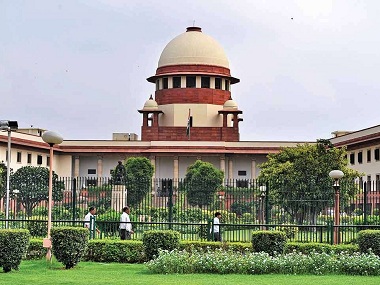The Supreme Court of India delivered a landmark judgment in the Ayodhya case, which is the oldest land title dispute in India, on Saturday. The judgment is for most parts unanimous, except certain sections where a lone judge has dissented. The matter was heard by the Constitution Bench — comprising Chief Justice of India Ranjan Gogoi, Justices SA Bobde, DY Chandrachud, Ashok Bhushan, and SA Nazeer — continuously for 40 days. In summation, while on one hand the Supreme Court unequivocally awarded the entire disputed structure to Hindus, it also termed the desecration of the Babri Masjid in 1991 a crime.
Here are the key points from the judgment as read out by Chief Justice of India Ranjan Gogoi.
- Supreme Court grants entire 2.77 acre of disputed land in Ayodhya to deity Ram Lalla, under some conditions. The court ruled that the site will be managed by a Centre-formed trust.
- The trust should be set up in 3 months to formulate scheme for construction of Ram temple at the site where Babri mosque was demolished.
- The land rights of the disputed 2.77 acre land will be handed over to the deity Ram Lalla, who is one of the three litigants in the case. The possession however will remain with a central government receiver.
- Muslim parties will be awarded five acres in an alternate plot of land at a prominent place in Ayodhya.
- The Supreme Court said the disputed land was government land in the revenue records, however, the government did not show interest in it. It said that Muslims were unable to prove
- The Supreme Court said that the UP Sunni Central Waqf Board has failed to establish its case in Ayodhya dispute. It said that Muslims have not adduced evidence they were in exclusive possession of dispute site.
- However, on the contrary, Hindus established their case that they were in possession of outer courtyard.
- Nirmohi Akhara’s Shebait rights dismissed but Centre has been allowed to grant the Hindu body representation in the trust if deemed fit by the government.
- Supreme Court also dismissed plea of Nirmohi Akhara seeking control of entire disputed land.
- The Supreme Court also dismissed the appeal of the Shia Waqf Board in the politically sensitive case and held that the land belongs to the government as per revenue records.
- Supreme Court says Babri Mosque not built on vacant land, and the underlying structure was not Islamic in nature. However, the Archeological Survey of India has not clarified whether the structure found underneath was a Ram Temple.
- The apex court also said that the faith of Hindus that Lord Ram was born at the demolished structure is ‘undisputed’
- Another important line of thought taken by the Constitution Bench was that the title cannot be established on the ground of faith or belief and they are only an indicator for deciding the dispute.
- Damage to Babri mosque was violation of law, the Supreme Court said. It held that Muslim were deprived of the possession of the mosque by forceble desecration.
- One judge has dissented on the disputed site being held the birth place of Lord Ram. However, the CJI didn’t name that judge.
_**CLICK HERE TO FOLLOW LIVE UPDATES ON THE AYODHYA VERDICT**_ With inputs from agencies


)

)
)
)
)
)
)
)
)



